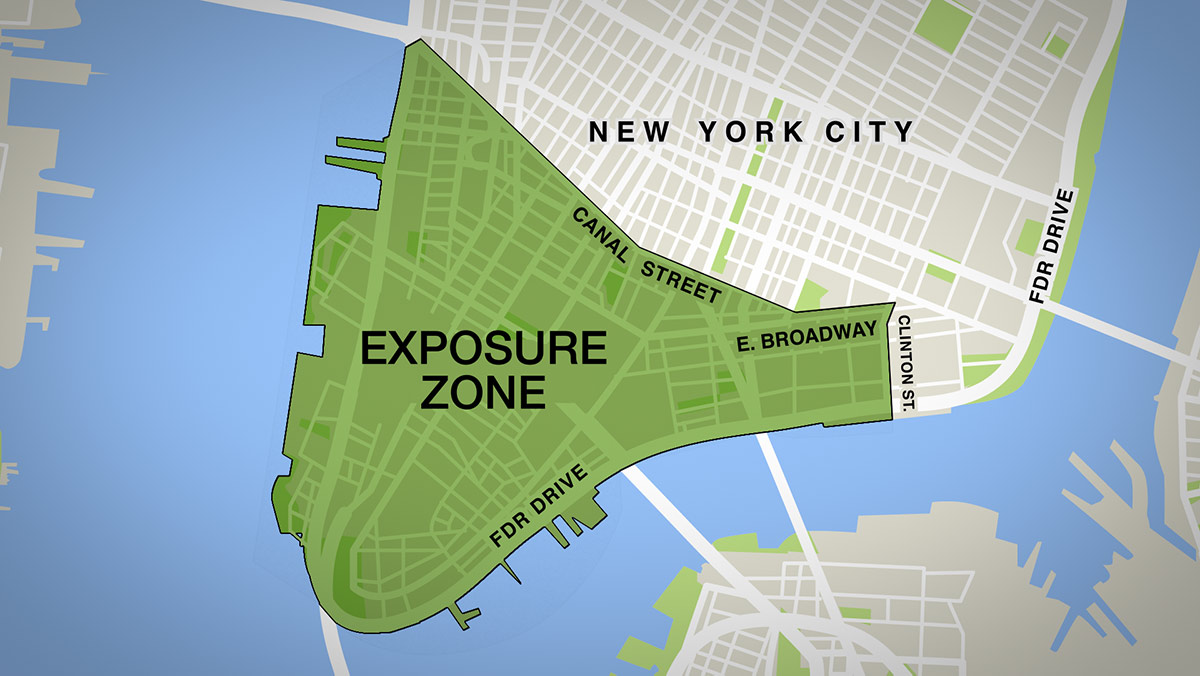
The toxic dust cloud that formed in Lower Manhattan in the aftermath of the 9/11 attacks lasted for months and impacted the health of many survivors and responders in the exposure zone.
The dust cloud contained pulverized concrete, asbestos, jet fuel, burning plastics, heavy metals, and many other carcinogenic substances. Consequently, 9/11-related eye and orbit cancer affected many responders and survivors in the years following the attacks.
Victims of 9/11-related eye and orbit cancer, as well as other cancers, can receive free medical care and compensation for their lost earnings and pain and suffering. Often, claiming this successfully is made easier with the assistance of a 9/11 attorney.
How can 9/11 toxic dust cause eye cancer?
Many thousands of cases of 9/11-related cancers have added to the thousands of fatalities from the attacks themselves. This includes over 70 different types of cancer.
The eyes are one of the most sensitive areas of the body and are very susceptible to dust. When the dust contains carcinogens, it’s even more dangerous. The Centers for Disease Control and Prevention (CDC) found that around 50 percent of individuals living near the World Trade Center site reported eye irritation or infection around one month after the attacks.
A proportion of these cases unfortunately developed into cancers in the months and years since. Some of these developed from within the eye and other “secondary tumors” spread to the eye from other areas of the body, such as the breast, lung, skin, and prostate.
Eye cancer can affect three different parts of the eye:
- The eyeball
- The bony eye socket that houses the eyeball (orbit)
- The adnexa, which are the supporting structures for the eye (e.g., eyelid, tear glands, etc.)
Cancerous tumors of all three parts of the eye have been linked with exposure to 9/11 dust. These can severely impact vision or even be fatal if left untreated.
What types of eye cancer are there?
The three main types of eye cancer affect the three main areas of the eye, as already identified:
- Intraocular cancer, which affects the eyeball itself. This type of eye cancer may be a melanoma, usually originating in the uvea within pigment-making cells known as melanocytes. Non-Hodgkin lymphoma may also affect the eyeball.
- Orbit cancer, which usually results from tumors affecting the tissues (nerves, muscles, or skin) around the eyeball.
- Adnexa cancer, which also usually results from tissue damage around the eye; eyelid cancer is usually skin cancer.
The main symptoms of eye cancer
One of the challenges with detecting eye and orbit cancer is that many of the symptoms may not be apparent until the latter stages of the disease.
Generally speaking, victims suffer the following types of symptoms:
- Blurred vision or visual disturbance
- Sudden loss of vision
- Spots in the vision or sudden flashes of light
- A narrower field of vision
- A dark spot visible on the colored part of the eye
- A change in the position of the eyeball in the socket due to bulging of the eye from the tumor
- A change in how the eye moves within the socket
- Changes to the size or shape of the pupil
What are the main treatments for eye cancer?
Treating eye cancer first requires a careful diagnosis. The appropriate treatment will depend on the size and location of the tumor, whether vision in the eye is lost or can be saved, whether the cancer has spread (metastasized), and the general state of health of the patient.
The treatment options will generally include the following:
- Active surveillance, especially if the cancer is slow-growing
- Surgery to remove the eye or the tumor, especially if it is aggressive
- Surgery to remove the diseased area of the eye
- Targeted radiation therapy to kill the cancer cells
- Laser therapy to shrink smaller tumors (if surgery or radiation therapy are not possible)
- Chemotherapy, where high-powered drugs are used to kill the cancer cells
Treatments for eye or orbit cancer can lead to further issues for victims and their families. Surgeries, radiation therapy, and chemotherapy can leave victims weak and in great need of support, as well as reduced immunity and susceptibility to other diseases or conditions.
What should you do if you have eye cancer and were in the 9/11 exposure zone?
Because cancer often has a lengthy latency period, many 9/11 responders and survivors continue to be diagnosed with eye and orbit cancers more than 20 years after the 9/11 attacks.
Anyone who was in the exposure zone (in Lower Manhattan or another 9/11 crash site) between 11th September 2001 and 31st May 2002 and who suspects eye cancer, should seek immediate help from the available federal programs and, if necessary, seek the help of a 9/11 victims attorney.
Register with the WTCHP and VCF
The federal government operates two separate programs to assist survivors or responders with 9/11-related health conditions:
- The World Trade Center Health Program (WTCHP): free medical monitoring and healthcare for anyone with a 9/11-related illness or health problem, including doctor visits, surgery, prescription medications, and screening.
- The September 11th Victim Compensation Fund (VCF): compensation for individuals who have suffered from those conditions and for families of those who died from them. Funding is available for all VCF claims submitted until October 1, 2090, but all survivors and responders can register with the fund at any time, regardless of whether they are sick or not.
Note that if you suffer from a 9/11-related health condition like eye or orbit cancer, you must register with the VCF within two years of receiving a certification of your 9/11-related illness from the WTCHP.
Speak with an experienced 9/11 attorney
Determining what victims are eligible for is not always easy. An experienced 9/11 attorney can help assess whether certain health conditions qualify as 9/11-related and, if so, what treatment is available from the WTCHP and how much compensation may be due from the VCF.
An attorney can also help you register with the WTCHP and register and/or make a claim with the VCF, gathering and submitting the necessary paperwork during the application process and ensuring that you receive what you are entitled to—even if that means appealing a decision.
VCF claims can cover any out-of-pocket medical and other expenses associated with the condition, as well as lost wages and pain and suffering—up to $250,000 for individuals diagnosed with eye or orbit cancer linked to a 9/11 toxic exposure.
To discuss your situation and learn more about how we may be able to help you, please call Weisfuse & Weisfuse, LLP at 332-239-2238 or contact us online to schedule a free consultation.






